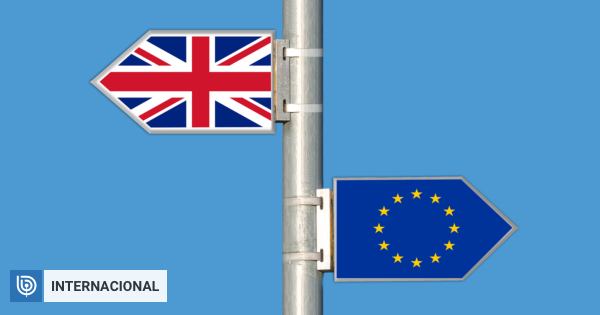Time is pressing more than ever. Without a free trade agreement, as of January 1, relations between the United Kingdom and the EU will be governed by the rules of the World Trade Organization (WTO), a scenario of unforeseeable economic consequences that carries tariffs and fees.
–
Fishing rights in British waters again blocked talks on Saturday for a post-Brexit trade agreement between the United Kingdom and the European Union (EU), so their negotiators reconvened for Sunday.
“The divergences remain the same”, indicated a European source when the negotiations were interrupted this day.
Both parties play against the clock: there are only ten days left to close a deal that avoids chaos of a brutal rupture and the return of tariffs and quotas on both sides of the English Channel.
Fishing represents a small economic weight in the commercial relationship between the United Kingdom and the EU, but it has a key political and social importance for various countries, in particular France and the Netherlands.
At the center of the debate are the 650 million euros ($ 800 million) in fish caught each year by European fleets in British waters, and the length of time that would allow European fishermen to adapt to the new conditions.
Brussels would propose to waive about 20% of that amount over a seven-year period. The British claim 60% within a three-year adaptation period, according to European sources. “It is a question of numbers now,” said a European diplomat.
The European negotiator, Frenchman Michel Barnier, has consulted with countries that share the rich British fishing grounds to try to find a way out, the source added.
The European Fishermen’s Alliance warned of a agreement that could mean “the death of a large part of an industry that it has contributed so much to make live the fishing communities of nine member states ”of the EU.
Sunday night
For his part, European Parliament insists that it wants an agreement by midnight tomorrow Sunday (8:00 p.m. in Chile) to examine it, ratify it and that it can enter into force on January 1.
However, the French Secretary of State for European Affairs, Clément Beaune, did not rule out that these negotiations would continue beyond Sunday.
You will not “sacrifice everything” for being Sunday nighthe said on France Inter station. “Entire sectors are at stake, such as fishing, as well as the conditions of competition for our companies,” he added.
An agreement reached in the last days of December could enter into force provisionally, an option that the member countries seem to agree with, but which Parliament opposes.
The other issues that are blocking negotiations – competition rules and the future dispute settlement mechanism – seem to be gradually being resolved.
The EU refuses to have an unregulated economy at its doorstep that they would free themselves from unfair competition towards their companies, without respecting environmental, social, fiscal norms or their strict public aid regime.
Time is pressing more than ever. Without a free trade agreement, as of January 1, relations between the United Kingdom and the EU will be governed by the rules of the World Trade Organization (WTO), a scenario of unforeseeable economic consequences that entails tariffs and quotas.
On both sides of the English Channel they prepare for the return of tariff controlsBut a report from the British Parliament warned that preparation is insufficient in the UK, which could lead to disturbances in ports and security.
– .


